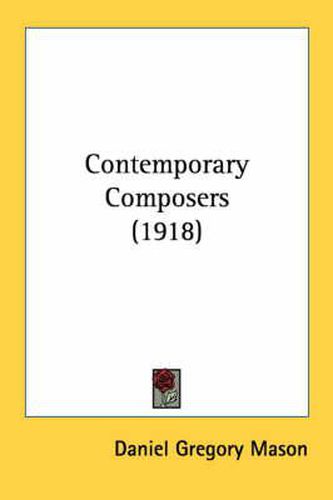Readings Newsletter
Become a Readings Member to make your shopping experience even easier.
Sign in or sign up for free!
You’re not far away from qualifying for FREE standard shipping within Australia
You’ve qualified for FREE standard shipping within Australia
The cart is loading…






Purchase of this book includes free trial access to www.million-books.com where you can read more than a million books for free. This is an OCR edition with typos. Excerpt from book: Ill SIR EDWARD ELGAR SIR EDWARD ELGAR HE most inspiring chapters of musical history are those that tell of the struggles of great men, spurred by the desire for free, sincere, and personal speech, to wrest the musical language out of the triteness long conventional usage has given it; to make it say something new; to add, so to speak, to the impersonal organ chord it sounds an overtone of their particular human voices. This is what stirs us when we think of Beethoven, after he had written two symphonies in the style of Haydn and Mozart, finding himself at the opening of a new road, leading he knew not whither, but irresistibly summoning him; of Gluck, at fifty, protesting against the hollowness of the Italian operas he had been writing up to that time; of Franck, still older, finding at last the secret of that vague, groping, mystical harmonic style he made so peculiarlyhis own. Men dread liberty, says Bernard Shaw, because of the bewildering responsibility it imposes and the uncommon alertness it demands; no wonder that they acclaim as truly great only those artists who fully accept this responsibility and successfully display this alertness. And it may be suggested that the more conventional, and therefore paralyzing to personal initiative, the style from which the artist takes his departure, the more alertness does he require, and the more credit does he deserve if he arrives at freedom. If this be true, Sir Edward Elgar, who, starting at English oratorio, has arrived at the cosmopolitan yet completely individual musical speech of the first Symphony, the Variations, and parts of The Dream of Gerontius, is surely one of the great men of our time. For nothing, not even stark crudity, is so unfavorable to artistic life as the domination by a conventional formalism…
$9.00 standard shipping within Australia
FREE standard shipping within Australia for orders over $100.00
Express & International shipping calculated at checkout
Purchase of this book includes free trial access to www.million-books.com where you can read more than a million books for free. This is an OCR edition with typos. Excerpt from book: Ill SIR EDWARD ELGAR SIR EDWARD ELGAR HE most inspiring chapters of musical history are those that tell of the struggles of great men, spurred by the desire for free, sincere, and personal speech, to wrest the musical language out of the triteness long conventional usage has given it; to make it say something new; to add, so to speak, to the impersonal organ chord it sounds an overtone of their particular human voices. This is what stirs us when we think of Beethoven, after he had written two symphonies in the style of Haydn and Mozart, finding himself at the opening of a new road, leading he knew not whither, but irresistibly summoning him; of Gluck, at fifty, protesting against the hollowness of the Italian operas he had been writing up to that time; of Franck, still older, finding at last the secret of that vague, groping, mystical harmonic style he made so peculiarlyhis own. Men dread liberty, says Bernard Shaw, because of the bewildering responsibility it imposes and the uncommon alertness it demands; no wonder that they acclaim as truly great only those artists who fully accept this responsibility and successfully display this alertness. And it may be suggested that the more conventional, and therefore paralyzing to personal initiative, the style from which the artist takes his departure, the more alertness does he require, and the more credit does he deserve if he arrives at freedom. If this be true, Sir Edward Elgar, who, starting at English oratorio, has arrived at the cosmopolitan yet completely individual musical speech of the first Symphony, the Variations, and parts of The Dream of Gerontius, is surely one of the great men of our time. For nothing, not even stark crudity, is so unfavorable to artistic life as the domination by a conventional formalism…